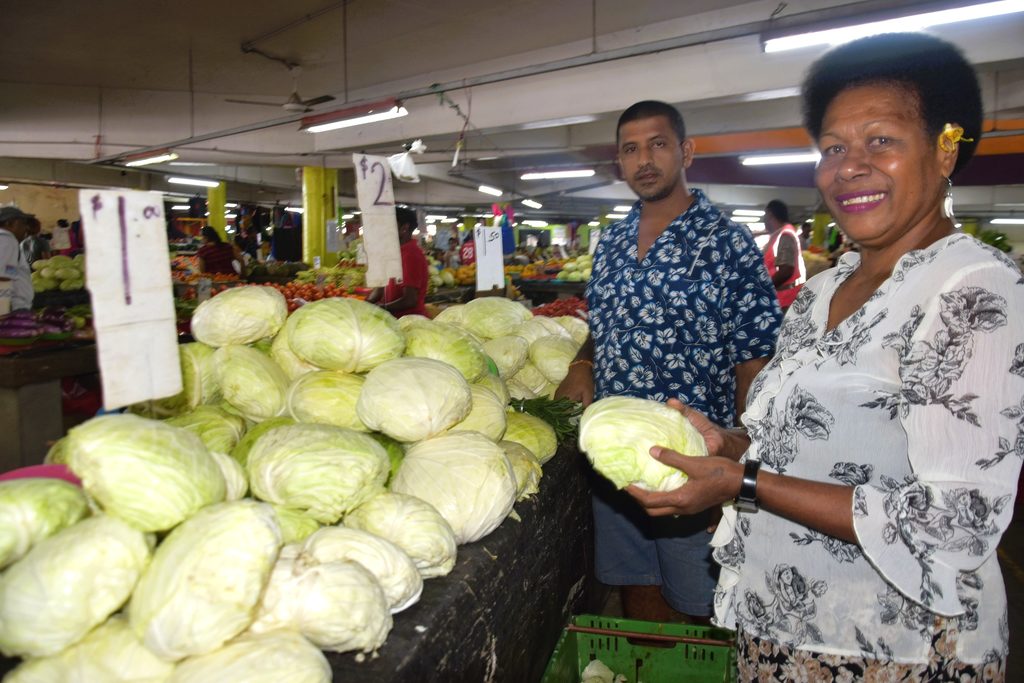Silivia Bulouniwasabula prefers to shop for groceries at Max-Val-U Supermart, mainly due to the convenience it offers her.
Being a regular shopper there, she values not only accessibility but also the importance of making careful and informed choices when picking out food for her family.
“It is important to be aware of what we are taking home to our families,” she said.
“I always prioritise food safety whenever I’m out on grocery shopping.”
Silivia said she takes her time to carefully inspect each item before placing it in her cart.
She said it is essential to ensure that whatever food she brings home is safe for her family to consume.
In a week she would spend about $100 on grocery items and about $15 for vegetables in the market.
Silivia emphasises that she reduces the usage of cooking oil at home and more of eating soup meals.
“We don’t entertain eating fry food as it is not healthy for us, we eat more soup as it is far more healthier,” she said.
She shared that they eat meat mainly on Sundays and not on weekdays as they focus on eating more healthier dishes.
Silivia said they are partly vegetarian at home and that is the reason they eat more vegetables than meat.
When it comes to choosing food items, she is particular about potatoes, onions, and flour brands.
“These are items I pay extra attention to, checking for freshness, quality, and expiry dates,” she said
She emphasises that such commonly used foods are often overlooked by many shoppers, which can lead to disappointment or waste when poor-quality items are discovered only after returning home.
For her, these are the staples that matters the most in daily meals, so they must meet a certain standard.
Another important habit she follows is reading labels carefully.
Silivia stresses the value of checking product information like expiry dates, ingredients, storage instructions, and nutritional content.
“Many people tend to ignore these small but important details, which can sometimes have health implications or affect the shelf life and usability of the product,” she said.
Silivia also believes that being attentive while shopping can make a big difference in avoiding regrets later.
She encourages other shoppers to develop the habit of inspecting food items closely and not rushing the process.
“Whether it’s checking for mold on vegetables, ensuring that packaged items are sealed properly, or avoiding expired products, I believe that a few extra minutes at the supermarket can lead to better food choices and improved family health.”
Silivia not only shops carefully for groceries but also supports her family’s meals through her backyard garden.
At home, she grows a variety of useful trees including coconut trees, breadfruit trees, and a lemon tree.
“This small garden plays an important role in our daily meals, providing fresh and natural ingredients that reduce the need to buy everything from the store,” she said.
“My family’s meals often include vegetables as the main ingredient, with less focus on meat.”
Silivia said this reflects a lifestyle that values healthier, plant-based eating.
She said using homegrown produce, such as breadfruit, rourou, bele, cabbage and lemons, helps maintain a balanced diet while also cutting down on grocery costs.
She emphasises in making use of what’s available at home and adding fresh vegetables into almost every meal.
“My gardening efforts not only support our health but also promotes self-sufficiency and sustainability in our households,” she said.
She urges shoppers to pay extra attention to products they’re purchasing and never rush when it comes to shopping!

